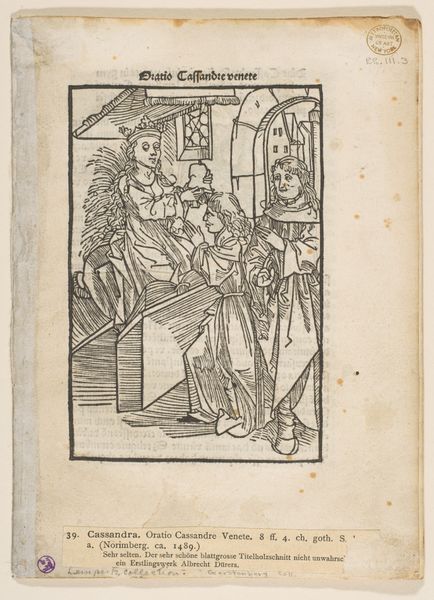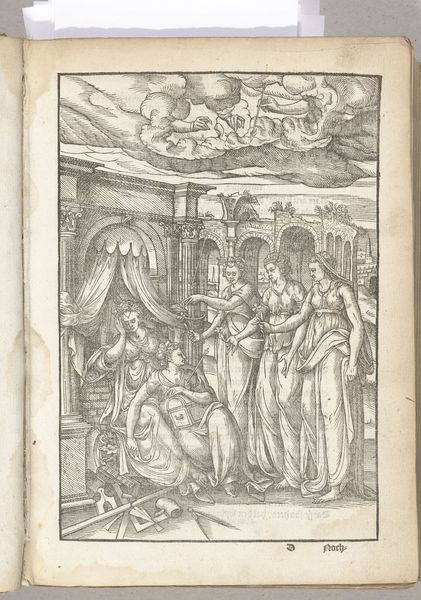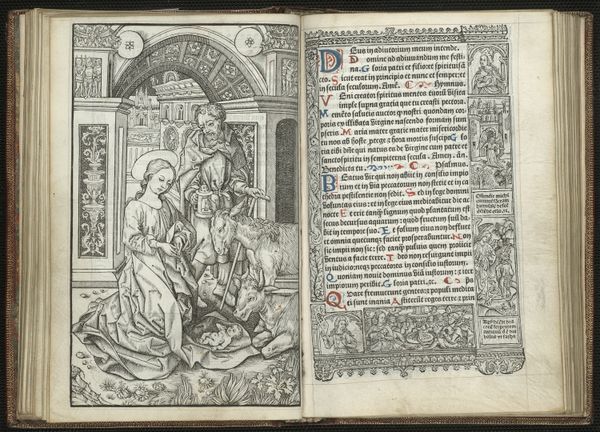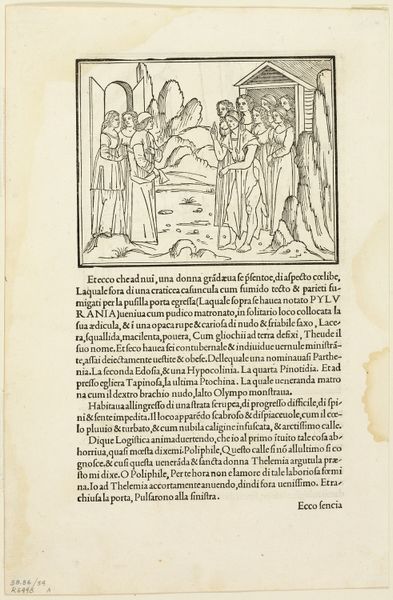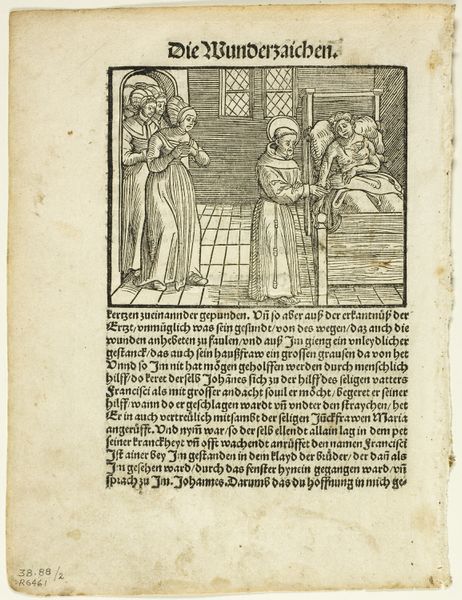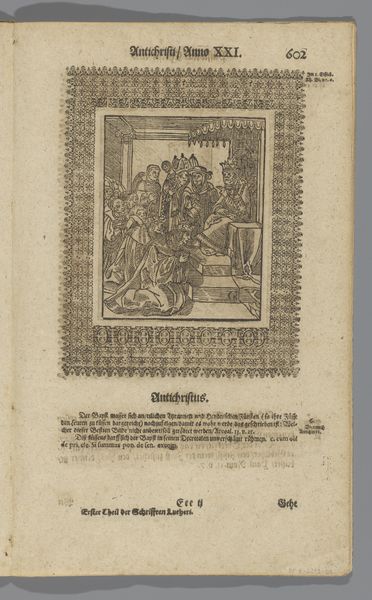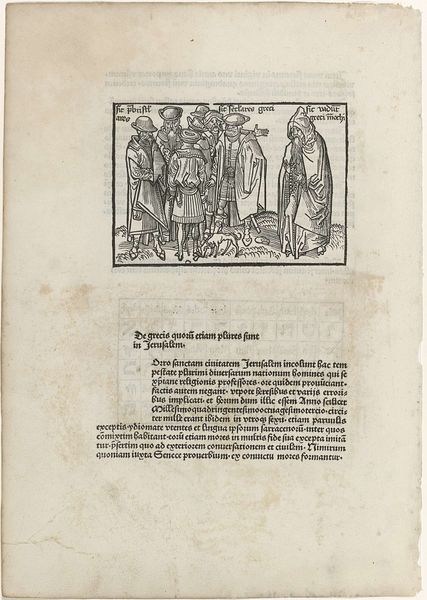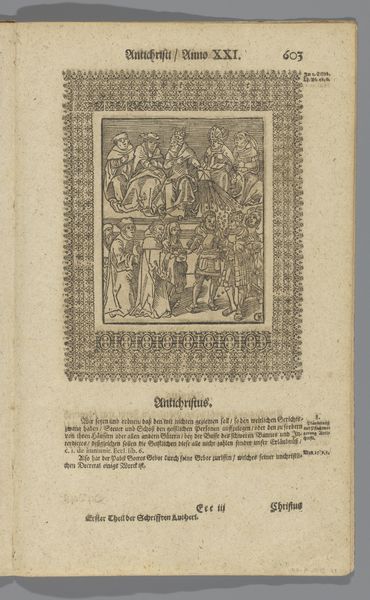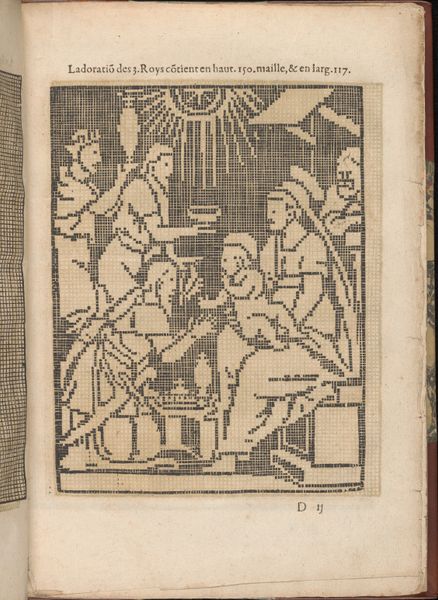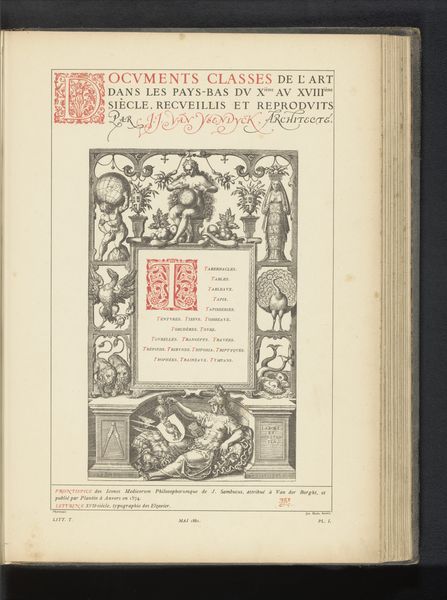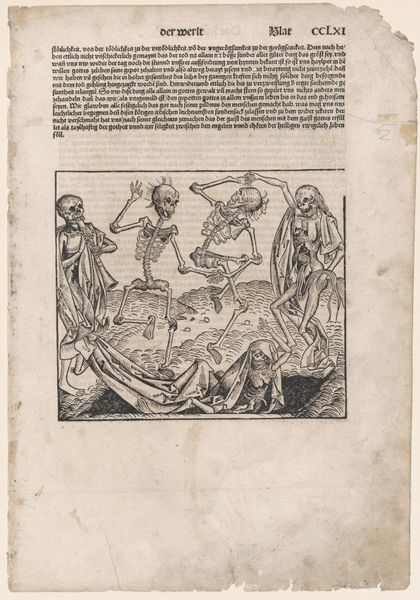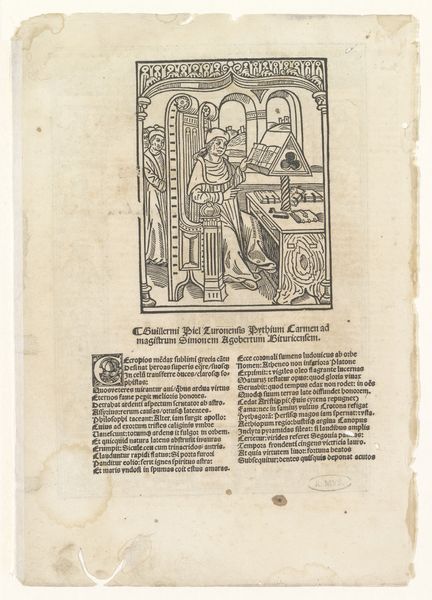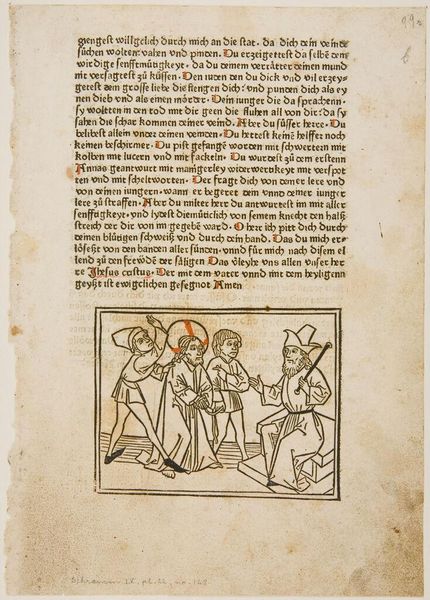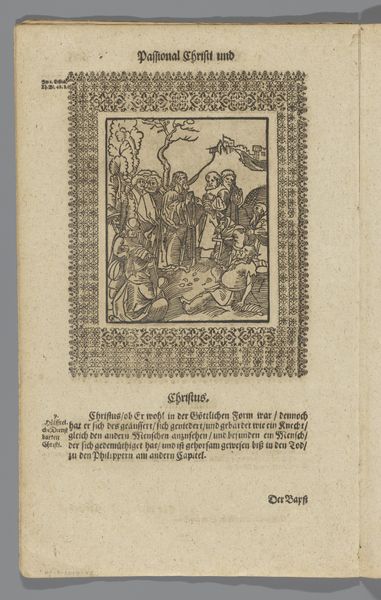
drawing, print, woodcut
#
drawing
#
medieval
#
narrative-art
# print
#
woodcut
Dimensions: 11 1/4 x 8 1/4 x 7/8 in. (28.5 x 21 x 2.3 cm)
Copyright: Public Domain
This is a page from *Vita et Fabulae*, made by Aesop sometime around the sixth century BCE, where the fable of the fig is given visual form. Notice the motif of the fig, spewed forth as evidence of a lie. The act of vomiting, historically, has been tied to purging, a kind of ritualistic cleansing of impurities. In a psychoanalytic context, one might even interpret the regurgitation of the fig as a symbolic release of repressed guilt. This reminds us of the recurring motif of purging that we see echoed across time, from ancient Greek tragedies to medieval morality plays, where the body externalizes the internal turmoil. It is a powerful force that engages viewers on a deep, subconscious level. This image reminds us that even the simplest narrative can be a potent vehicle for conveying complex human emotions, and how symbols endure and evolve across cultures.
Comments
No comments
Be the first to comment and join the conversation on the ultimate creative platform.
